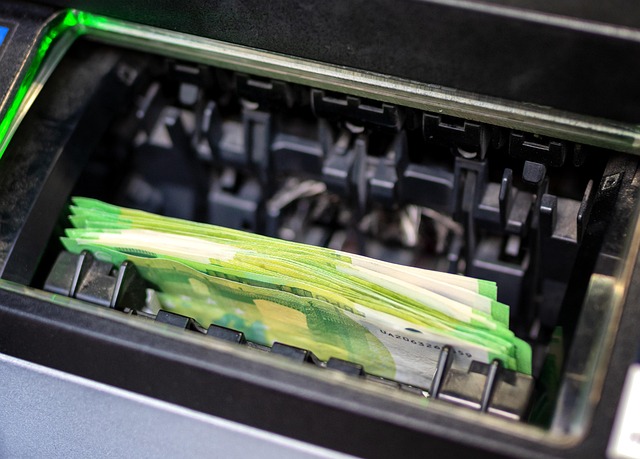Car title loan foreclosure has significant legal and financial implications, with lenders adhering to state laws protecting both parties. After a borrower defaults, foreclosure proceedings lead to vehicle sale to recover the loan balance. Borrowers can mitigate consequences by understanding their rights, exploring payoff options, and familiarizing themselves with state protections. Lenders face strict obligations, potential reputational damage, and legal repercussions, emphasizing the need for responsible lending practices in the car title loan industry.
“Unraveling the intricate web of car title loan foreclosures involves understanding both borrower rights and lender responsibilities. This article delves into the legal definitions and processes behind these high-stakes transactions, exploring the potential consequences for borrowers and the implications for lenders.
We dissect the steps leading up to foreclosure, analyze the rights and protections in place, and discuss recourse options available to both parties. By examining these ‘car title loan foreclosure implications,’ individuals navigating this complex landscape can make informed decisions.”
- Understanding Car Title Loan Foreclosure: Legal Definitions and Processes
- Potential Consequences for Borrowers: Rights, Protections, and Recourse
- Lender Responsibilities and Legal Implications After Foreclosure
Understanding Car Title Loan Foreclosure: Legal Definitions and Processes

Car title loan foreclosure involves a legal process where a lender repossesses a vehicle due to the borrower’s failure to meet their loan obligations. This severe outcome results from the use of the car title as collateral for the loan, allowing lenders to claim ownership if payments are not made according to the agreed terms. The first step in this process is typically a default notice, giving the borrower a chance to cure the default. If the borrower fails to rectify the situation within the stipulated time, the lender can initiate foreclosure proceedings. This involves legal action to sell the vehicle and recover the outstanding loan balance.
The implications of car title loan foreclosure extend beyond just the loss of a vehicle; they carry significant legal consequences. During this process, lenders must adhere to specific state laws that dictate how repossession and foreclosure should be handled. These laws protect borrowers’ rights while ensuring lenders can enforce their security interest in the vehicle. After foreclosure, the lender facilitates a title transfer, officially transferring ownership of the repossessed vehicle to themselves or another party to sell it and recover funds. The speed at which this process unfolds is often highlighted by the term “quick approval” and “quick funding,” reflecting the urgency lenders prioritize to mitigate financial losses.
Potential Consequences for Borrowers: Rights, Protections, and Recourse

When facing a car title loan foreclosure, borrowers must be aware of several potential consequences and rights they possess. The primary implications revolve around the loss of their vehicle, which serves as collateral for the loan. This means that upon default, lenders can initiate the repossession process, leading to the borrower losing ownership of the vehicle. However, borrowers are not entirely without recourse. They have the right to understand the terms and conditions of the loan, including interest rates, repayment schedules, and any associated fees.
Additionally, borrowers can explore options for loan payoff or negotiation with lenders to avoid foreclosure. This may involve refinancing or restructuring the loan to make it more manageable. It’s crucial to stay informed about one’s rights under state laws governing car title loans, which often include provisions for borrower protection. Understanding these implications and exercising one’s rights can help mitigate the negative Car Title Loan Foreclosure consequences and provide a path towards resolving the debt.
Lender Responsibilities and Legal Implications After Foreclosure

After a car title loan foreclosure, lenders have specific responsibilities and face significant legal implications. They must adhere to fair debt collection practices as mandated by law, ensuring transparency and adherence to consumer rights. This includes providing clear notices, revealing all fees, and offering reasonable payment plans for those who wish to regain their vehicle. Lenders should also verify the accuracy of information during the initial online application process, conducting a thorough credit check to assess borrower eligibility.
The legal implications extend to potential civil lawsuits from borrowers who feel wronged, as well as regulatory scrutiny from financial authorities. Lenders must navigate complex regulations regarding repossession procedures, interest rates, and loan terms, ensuring they remain compliant to avoid hefty fines and reputational damage. These obligations underscore the importance of responsible lending practices in the car title loan industry, aiming to protect both lenders and borrowers from adverse Car title loan foreclosure implications.
Car title loan foreclosures have significant legal implications, affecting both borrowers and lenders. Understanding the processes and consequences is crucial for navigating this complex scenario. Borrowers must be aware of their rights and protections, while lenders should adhere to legal responsibilities to mitigate potential risks. By recognizing the car title loan foreclosure implications, all parties can ensure fair practices, maintain transparency, and explore available recourse, ultimately fostering a more accountable and regulated lending environment.






